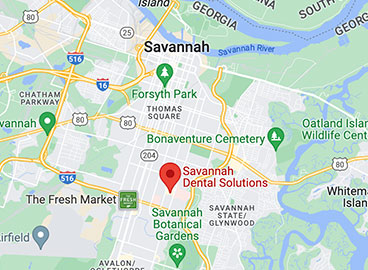Should I Be Concerned About Baby Teeth Delayed Tooth Eruption?
New parents are extremely focused on their baby’s milestones, and keeping an eye out for each new tooth is no exception. If teeth do not emerge when parents expect them, panic can ensue. Fortunately, most of the time, delayed tooth eruption is nothing to worry about. Occasionally, though, an underlying condition could be the reason for delayed tooth eruption. Here is what you should know.
Normal Tooth Eruption
When a baby is born, most of his or her teeth are already formed beneath the gumline. They usually start to come in when the baby is around six months old, starting with the front teeth and moving back from there. By the age of three, almost all children have a full set of 20 baby teeth.
Abnormal Delays
Averages are just that, and most “delays” in tooth eruption actually fall within the wide range of normal. For example, the first tooth comes in “on average” at around six months of age, but anywhere from four months to 15 months is normal. If your child has no teeth at all by the time he or she is 18 months, it is important to visit the dentist for a full assessment.
Causes of Delayed Tooth Eruption
Sometimes delayed tooth eruption is simply due to normal heredity. If one parent or sibling had teeth come in late, the new baby is more likely to have delayed tooth eruption as well. In addition, babies that are premature or of low birthweight tend to get their teeth a bit later than average.
Less common causes of delayed tooth eruption include Down’s Syndrome, hypopituitarism, rickets, nutritional deficiencies, and rare genetic conditions. It is important to rule out these conditions, and to treat them if present, but they do not cause the majority of cases.
Is Delayed Tooth Eruption Harmful?
Delayed tooth eruption is not serious, but it does increase the risk that your child may need orthodontic work. In fact, children with delayed tooth eruption are 35 percent more likely to need orthodontic care before their 30th birthday. This appears to be the only real risk, though, of delayed tooth eruption that is not associated with an underlying health condition.
New parents tend to panic at any variation from the “typical” development schedule, but individual differences are actually quite normal. Have your child checked by a dentist if she has no teeth by 18 months of age, and otherwise try not to worry.
As a precaution, all children should be assessed for orthodontic issues in early childhood, and those whose teeth erupted late are at higher risk for orthodontic trouble. In most cases, though, delayed tooth eruption is simply due to individual variances and is not likely to lead to future issues. When the baby teeth do arrive, be sure to brush them carefully!
Want to Learn More?
If you want to learn more about how we can keep your entire family’s smiles in tip top shape, contact us today at (912) 354-1366 for more information or to schedule an appointment.



